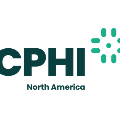Subsidiaries
UBM
If this is your company, CONTACT US to activate Packbase™ software to build your portal.
The second part of the 2021 CPhI Annual Report looks ahead to predict the pharma manufacturing, therapeutic and technology environment in 2030. The analysis foresees the use of automated cobots, AI, real-time release and rapid growth in new areas like mRNA vaccines, alongside the personalization of therapeutics (delivered at far larger scale). In terms of geographic dominance, value in the pharma market will be led by the USA and China [accounting for around 50%], followed by European nations and Japan, with emerging economies still nurturing new R&D centres.
These new findings are released ahead of CPhI Worldwide (November 9-11, 2021), which is being held for the first time in two years at the Fiera Milan, Italy and is expected to welcome the end-to-end pharma supply chain – from finished dosage and ingredients to packaging, contract services, bio and machinery. To gain an advanced copy of the full CPhI report and analysis, register here to attend CPhI Worldwide.
Significantly, short term priorities around reshoring and localized supply chains are acting as the catalyst for much of the long-term change forecast – the knock-on effects of which are a far faster embrace of next generation process controls, standardization of reporting technologies and newer innovations in digital infrastructures.
“Our experts suggest that the rate of change in pharma manufacturing and supply is likely to accelerate over the next 5-years and we will see adoption that might have otherwise taken 10-years to achieve [pre-pandemic]. Pharma is seeking new partners, ingredients providers and contracts services organizations – with the supply chain competing to align not only with the new therapies coming through discovery, but also with next generation technologies that will enable better and potentially cheaper medicines. Understandably, this means partnering discussions are beginning much earlier, and global companies are widening their networks, which is why CPhI is so important as a facilitator of the ecosystem,” commented Orhan Caglayan, Brand Director at CPhI Worldwide.
The CPhI insights are provided by Bikash Chatterjee, CEO at Pharmatech Associates (a USP Company) and Aurelio Arias, Engagement Manager, Thought Leadership, IQVIA – the latter of whom is giving a wide-ranging presentation at this year’s event [see full agenda here].
Chatterjee suggests that adoption of continuous processing, PAT (Process Analytical Technology), and PAC (Process Analytical Chemistry) are now combining so that manufacturing not only produces better-quality products, but also, potentially at a lower cost. This newer manufacturing adoption has been accelerated by the macro changes in the last year, and government efforts to ‘reshore’ manufacturing and secure supply chain resiliency for essential medicines.
“The integrity of the strategic national stockpile (SNS) will be a springboard for the development and refinement of advanced manufacturing technologies. For industry, the chief benefit from broader adoption of such approaches is to take advantage of lower cost of goods by reducing waste and the cost of poor quality (COPQ), and that in itself may increase the industry’s comfort with principles such as real time release (RTR). In a market likely to continue to encounter consistent downward pricing pressures, the adoption of these elements will allow manufacturers to lower their costs and still manage a profit as they provide improved, higher quality drug therapies to patients— this is a win-win in anyone’s book,” added Chatterjee.
To enable a faster adoption rate, Arias is predicting that within the next five years, most health systems will introduce much greater interoperability and build a strong electronic health record network to utilize real evidence-backed decisions. He commented, “the tech sector has an important part to play in this puzzle; where they are able to collect data on people before they become patients on their mass-market smart devices. To further the value from their data, tech companies must find ways of working with the healthcare sector that leverages their strong consumer focus and unique platforms in a way that works within the existing regulations and ethical frameworks of healthcare.”
Chatterjee added that we are on the cusp of a standards revolution, with the cost of poor quality (COPQ) factoring in development and methodology, AI used in process selection, and regulatory bodies or the International Council for Harmonisation (ICH) likely to imminently define new PAT and PAC standards.
In fact, the findings of the report suggest that by 2030 not only will manufacturing processes change, but so will the therapeutic indications in the pipeline. “By 2030 we expect the leading therapeutic indications accompanying oncology will be in crossover areas like inflammation and cancer vaccines. Growth potential will also be sourced from rare diseases and niche immunology areas. Some therapies will experience a revival, like cardiovascular, liver disease, and CNS – with or without Alzheimer’s – already showing huge potential to be treated using digital therapeutics. Significantly, the modalities in which we can tackle these disease areas will increase with the development of platform technologies, more specifically in RNA, Cell & Gene, Digital and Microbiome,” commented Arias
According to our experts, mRNA, whose profile has skyrocketed as a rapid and viable way to develop COVID-19 vaccines, could potentially have far larger long-term implications in oncology. In fact, Arias suggests that in the future, a patient’s cancer could be characterized ‘through a liquid biopsy to identify a distinct biomarker that can be targeted by administering a custom mRNA vaccine’.
Both our experts have pointed to increased digital innovation in the supply chain transforming efficiencies in manufacturing – from cobots to AI and extended reality for training – while also improving adherence within the patient cohorts via apps and online integration. The challenge is can regulators keep pace with the speed of change and without hindering innovation.
Significantly, with new manufacturing making it possible to manufacture on the individual level – and not just in cell and gene therapies – we are shifting in the coming decade towards personalization of medicine, but at scale. Therefore, pharma companies will need to rebalance their books, diverting costs from traditional engagements in favor of leaner, smarter ways of operating. Those unable to bridge the information gap will be left behind with old, mature brands and waning profitability.
Arias forewarns that data ownership, development and service provision will be integral to first mover advantage. He added, “the top pharma companies in 2030 will be those that can navigate this sea change by ruthlessly creating a path of prioritizing investments in promising countries and disease areas.”
To get the latest news from CPhI, please visit www.cphi-online.com.
-ENDS-
Notes to editors
About CPhI
CPhI drives growth and innovation at every step of the global pharmaceutical supply chain from drug discovery to finished dosage. Through exhibitions, conferences and online communities, CPhI brings together more than 100,000 pharmaceutical professionals each year to network, identify business opportunities and expand the global market. CPhI hosts events in Europe, Korea, China, India, Japan, South East Asia, North America, and the Middle East and Africa. Co-locating with ICSE for contract services; P-MEC for machinery, equipment & technology; InnoPack for pharmaceutical packaging; bioLIVE for biopharma; and Finished Dosage Formulation for every aspect of the finished dosage supply chain. CPhI provides an online buyer and supplier directory at CPhI-Online.com
For more information visit https://www.cphi.com
About Informa Markets
Informa Markets creates platforms for industries and specialist markets to trade, innovate and grow. Our portfolio is comprised of more than 550 international B2B events and brands in markets including Healthcare & Pharmaceuticals, Infrastructure, Construction & Real Estate, Fashion & Apparel, Hospitality, Food & Beverage, and Health & Nutrition, among others. We provide customers and partners around the globe with opportunities to engage, experience and do business through face-to-face exhibitions, specialist digital content and actionable data solutions. As the world’s leading exhibitions organizer, we bring a diverse range of specialist markets to life, unlocking opportunities and helping them to thrive 365 days of the year.
For more information, please visit www.informamarkets.com.
CPhI, ICSE, P-MEC, FDF, InnoPack Worldwide, BioProduction (09 November – 11 November 2021 at Fiera Milano, Milan); CPhI & P-MEC India (24-26 November 2021 at the India Expo Mart, Greater Noida, Delhi NCR – Delhi, India); CPhI & P-MEC China (Dec. 16 to 18, 2021 at SNIEC – Shanghai, China); CPhI Japan (20-22 April, 2022 at the Big Sight Exhibition Centre – Tokyo, Japan); CPhI South East Asia (11-13 May 2022 at Muang Thong Thani, Thailand); CPhI North America (17-19 May, 2022 at Pennsylvania Convention Center, United States), Pharmapack Europe (18-19 May 2022 at Paris Expo, Porte de Versailles - Hall 7.2, Paris)
For media enquiries, please contact:
Alex Heeley or Abdul Khalifeh
De Facto Communications
T: +44 (0) 203 735 8168
E: [email protected] / [email protected]


.jpg)








.jpg)

















.jpg)







